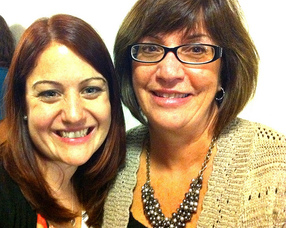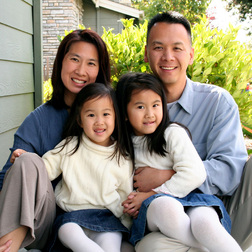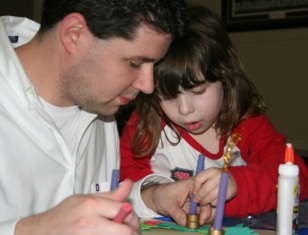|
A compilation for parents and caregivers The time that you spend with your children is prime time. You’re on stage, so to speak, influencing and teaching them by your words and behavior—whether you want to or not. So, in parent-child relationships, just spending time together is not enough. To make that time meaningful, it needs to be quality time. Careful thought and planning is a prerequisite for successful parenting. … Quality time together is one of the most important factors in building healthy and wholesome parent-child relationships. Quality time together may be a noisy family celebration, a quiet evening at home listening to [your] daughter practice her music, a sleepless night nursing a fevered child, a holiday spent cleaning out the garage together, or an hour spent in animated discussion. Whatever the activity, quality time together should convey such important messages as: “I love you,” “I want to be close to you,” “I enjoy you,” “You’re fun to be with.” … Every family benefits by setting aside a regularly scheduled family time. … When you begin to schedule quality time together, it is important that you and your child do things that have meaning. List your family’s favorite activities. Brainstorm them. Then rank these items from the most important to the least important. Finally, schedule the activities that you consider high priority. If you schedule only the easiest activities, or those that take the least effort or time, you might miss the most important ones.--Dr. Kay Kuzma * We can get so caught up in our state of endless busyness and frantic schedules and time-paced lives that we forget that what really counts most with our kids are those simple little things we do that make their homes fun, comfortable, and happy places. The following questions will help you reflect on how well you’re meeting that objective. 1. What would your child say is the best part of living in your home? What are the best traditions you do together that are so fun she’ll want to carry them on with her own child? The bottom line: What kind of memories are you creating for your children in your day-to-day existence? 2. What do you think your own kids would say is the one thing they wish they could change about your family? Could you make that change? What’s stopping you? 3. When is the last time your family sat and just giggled and laughed? When is the last time you remember your family doing absolutely nothing [together]? 4. What is one simple tradition or family routine you want to do to have fun with your family? Write it down. Then get ready to use it with your family. Suppose your children were asked what one thing they really wish they could change about your family. That very question was asked of eighty-four thousand students in grades six through twelve who completed a USA Weekend survey. What do you think most of the kids said? (Chances are it’s the same thing your own kids would say, so think hard.) It turns out that almost two-thirds of kids surveyed said they wished they could spend more time with their parents. In fact, more than two in five kids feel that time with their moms is rushed. What the kids said they wanted was not just more time, but more relaxed time. The kind of time a kid would consider as just plain “fun.” No expectations. No stress. No frantic pace. Just relaxed, good ol’ fun. It’s the kind of time that creates family togetherness. That relaxed, carefree time is also what our kids crave and need.--Michele Borba * One day before long, your children will be grown and gone. You’ll be thankful then that you gave them what they needed when they were growing up. … So during those hours in the night while you are keeping watch over a sick child, smiling when you want to cry, singing as you pray for patience, wiping little noses while you dream of someday doing great things for God, just remember that you are. You will never regret one prayer, one song, one loving word. Each small act of love reaches out to [your children] and touches them for eternity. After all the years of taking it all by faith, someday you—like me—will be blessed at seeing what they have become.--Derek and Michelle Brooks * As the saying goes: “What I do today is very important because I’m exchanging a day of my life for it. When tomorrow comes, this day will be gone, forever, leaving something in its place I have traded for it. I want it to be gain, not loss; good, not evil; success, not failure; in order that I shall not regret the price I paid for it.” That’s doubly true for you who are caring for your children. It’s not only an hour, or a few hours, or a day of your life, it’s an hour or two or a day of their lives as well. What are you filling their minds, hearts, and lives with? It’s not only about ensuring that they are learning their academic lessons. It’s about the love you show them, the example you impart, your manner with them, your attitude, your smile, and much more. What will your children take away from this day? Will it add to the foundation of their life? Will you know in your heart that you traded that day of your life well, because of what it resulted in or added to the lives of your children? You may not always see that your efforts are making a difference. Some days you will, but other days are tough. In those times, look at your little ones. You are investing the days of your life in them. You are trading your time, your life, your love, your skills, for lasting dividends in their lives.--Jesus, speaking in prophecy Courtesy of Anchor. Photo by Bill Branson [Public domain], via Wikimedia Commons
0 Comments
By Barbara Moran, Web reprint Our small moments can be our children's biggest moments. As parents, we may feel pressure to compete with the high-tech variety of activities, computers and videos for our children's brain space. It's easy to discount the gift of our time, no matter how brief or uncomplicated. Think back to childhood. The first time I saw a gold finch bird, I was about three. In the woods near our town's old boathouse, my mom suddenly whispered, "Look!-In that tree. See the yellow bird?" That small moment for her was one of my childhood's biggest moments. Though she had seen many gold finches, I had never seen a wild yellow bird before. The world was a beautiful, amazing place. That moment evolved into a memory. The gold finch remains my favorite bird. I told the story to my son, who now takes charge of keeping our feeder filled with sunflower seeds. We await "our" migrating gold finches (and later, their young) each spring. Think back to those who shared "small moments" with you. Chances are if you mentioned it to them, their memories would go blank. But you remember how they shared moments of knowledge or kindness, and in so doing, shared a part of themselves with you. Let us never underestimate how the genuine gift of our time, no matter how much or little, is part of our legacy to our children. It is how we make deposits into their memory banks. I don't remember if that walk with my mom took an hour or five minutes. I just remember her excitement. And her smile. And that's enough for me. Photo courtesy of Wikipedia. Used under CC-SA license.
There is no magic formula for parenting, no secret recipe for success. Just as I am an imperfect parent, I will raise imperfect children. I must lean hard into Jesus and walk by faith, following Him as I parent. My goal needs to be faithfulness. Faith and faithfulness.--Erika Dawson * Successful parents enjoy being parents. They enjoy parenting not because it's easy or instantly rewarding, but because of the sheer joy and privilege of cooperating with God in shaping another unique and precious life. Any parent of grown children will tell you that “they grow up so quickly.” Successful parents remind themselves of that and try to savor every day with their children. They immerse themselves in their children as much as possible and just enjoy them—even the days of dirty diapers, illness, and disappointments. They don't just love their children, they like them and look forward to spending time with them. Successful parents don’t expect perfection, either from themselves or their children. Parenting is an art, not a science. Successful parents understand that, like themselves, their children aren't perfect either. This frees them to love their children unreservedly. Successful parents don’t fear occasional failures. They understand that mistakes are a normal, even healthy, part of parenting. They make the best decisions they can, and when they're wrong, they learn from their mistakes and try to do better the next time. Successful parents don’t expect to have smooth sailing. Children have their own opinions, personalities, and preferences. Inevitably, they cause us to say, “Where did that come from?” or “What were you thinking?” Our responsibility to provide them with limits and guidance will sometimes clash with their growing desire for independence. Successful parents aren't surprised by [difficulties and conflicts]; they expect them. But successful parents understand that their responsibility to their children is not to always please them or make them happy—it's to make the hard decisions that will be for their best in the long run. Successful parents don’t go it alone.No one has the experience or answers to every parenting challenge. Successful parents aren't reluctant to seek out the wisdom of others. They know that, at the end of the day, the decision is theirs, but before they get there, there is plenty of wisdom along the way waiting to help them.--Richard Patterson, Jr. * One day a group of mothers was solemnly discussing the value of spending “quality” time with their preschoolers. The consensus seemed to be that, as bored as they were by pushing trucks along the floor, playing Candyland, or building Lego spacecraft, these activities were somehow sacred—deemed essential for purposes of bonding with their children. Suddenly, one mother’s voice rose above the others, “I’m sorry … I’m very clear about this with my older daughter. I just tell her, ‘I don’t play Barbies.’” The nonapologetic nature of her remark stopped everyone in their tracks. … We began to talk about what “quality time” really meant. [We discussed how] quality time by definition can be so stressfully full of “shoulds” and “oughts” that you lose the feeling of doing something mutually enjoyable. Sometimes the best time with kids is when there’s not that element of obligation or sacrifice. Spontaneous moments of pleasure feel more meaningful than hours devoted to Barbies and baseball cards. As someone once said, “Joy can be better caught than taught.”--Nancy Samalin with Catherine King * The surest way to teach your children something is through your own sample—not what you preach at them, not what you tell them they should do, but what you yourself believe and act upon.--Jesus, speaking in prophecy * When parents are brave enough to [apologize for] their flaws and lacks to their children, they serve as beautiful models of what it means to depend on God. When you are open and transparent before God and your children, you are saying that, “Even though I am many years older, I, too, depend on [Jesus], just as I want you to depend on Him.” Another benefit of being open before God and your children is that it will motivate them to seek you out and talk about their real feelings. They are more likely to share their problems and weaknesses with you if they know that you have been down that same road yourself. They will reason, Mommy won't be mad about this because she had it happen, too. … Show your child that you are depending on the all-encompassing love and strength of God in your life. Model submission to the Lord before your child and he will learn how to submit his own life to God.--Kevin Leman * Have you ever watched a mother duck with her little ducklings? Mother duck seems so cool, calm, and collected as she swims with her little ones on the pond, but all the while she’s watching out for them. That’s an example of the calmness of spirit that helps your little ones feel secure. You will always have more things to do than you have time to do, and it’s so easy to get in a rushed, nervous spirit. When that happens, you can make a conscious effort to remain calm and to convey that to your children. When pressures begin to mount, stop for a moment, close your eyes, and ask Me to fill you with the perfect peace that comes from trusting in Me.--Jesus, speaking in prophecy * I lift up my eyes to the mountains—where does my help come from? My help comes from the Lord, the Maker of heaven and earth.--Psalm 121:1–2 * He gives strength to the weary and increases the power of the weak. Even youths grow tired and weary, and young men stumble and fall; but those who hope in the Lord will renew their strength. They will soar on wings like eagles; they will run and not grow weary, they will walk and not be faint.--Isaiah 40:29–31 Text courtesy of www.anchor.tfionline.com. Photo copyright: alexandralexey / 123RF Stock Photo  By Chalsey Dooley Some days seem magical—things go well, I try some new ideas, I have something to show for the hours I’ve spent at various tasks. Then there are other times when I get to the end of the day struggling to find something of note that I accomplished. Sure, the kids were fed and dressed, they did their home-learning activities, they played in the park … but I still feel I want more. I want to be able to check off several things from my long to-do list. I want to be able to say I made leaps of progress. But rather than that, I feel like I’m falling further behind in so many areas of life. At the end of a long day a few months back, I was trying to push off the weight of despondency from having so much to take care of, with problems piling up faster than I could keep up with. Then I walked into the bathroom and found Patrick (two years old) had taken his soft, fuzzy, stuffed platypus, filled up the sink, given it a good wash, and now had poured baking soda (which I use for cleaning the sink) all over it. I didn’t need more messes to clean up. But it did look kinda cute, so I chuckled to myself, thinking,Even though I can’t seem to get around to any of my other goals, at least the platypus is clean! Later, as I looked at the children, happy, cozy in bed, waiting for their bedtime story, I decided to change my criteria for “accomplishment” and a “good day.” Now I go down a new list and see how many “checks” I can put. § Did I help my children smile today? § Was I patient when things didn’t go smoothly? § Did I show each son that I loved him personally? § Was I available to help, listen, and encourage, even at the cost of not “getting something done”? § Did I pray for someone today? § Did I laugh and choose to take things in stride when I felt like I was being pushed over the edge? Tomorrow’s another day. Eventually the to-do list will work out. Plod. Breathe. Smile. Plod. Breathe. Smile. We’ll get there, eventually, wherever “there” is actually meant to be. Chalsey Dooley is a writer of inspirational material for children and caregivers and is a full-time edu-mom living in Australia. Check out her website atwww.nurture-inspire-teach.com. Article originally published in Activated magazine. Used with permission. Photo by Kate Henderson via Flickr
The Parents Zone, Web Reprint, adapted Generation means all human beings born and living around the same time; also known as coevals. When there is a significant gap of time between two coevals, it is defined as “generation gap.” When we compare two generations and when there is a considerable difference in the lifestyles, habits, likes, and dislikes of the people belonging to these two separate times, problems due to age gap arise. It is no secret that this gap is widening rapidly. More and more parents and their offspring agree that they just can’t understand each other. This lack of understanding of social, moral, political, musical, or religious opinions leads to lack of acceptance, which is one of the primary reasons why families break. Here are a few tips for parents to help bridge this ever-widening gap: 1. Communicate constantly. It is simply a fact that communication plays an important role in bridging gaps between not only parents and children, but also in every relationship that we can think of. When we communicate respectfully with our children, we are letting them know that we are willing to do all it takes to lessen the age gap and understand things from their point of view. 2. Be open minded. Open mindedness means widening our horizons. When we widen our horizons and we open the doors and windows of our heart, we look at things with a new perspective. This helps us understand why what is being said is actually said. This is very important if we want to understand our children’s priorities and habits. 3. Learn to accept. Trying to understand our children’s world is no mean task. It takes a lot of effort to understand the younger generation. We have to accept first that we lived in a different world. For us, that was an ideal world, with less corruption, hypocrisy, cheating, and every bad thing we see so much increased now. Then, we will have to accept today’s times too, especially the fact that not everything is that bad, and make the effort to understand and accept our children’s perspectives and priorities. That is a big step towards bridging the generation gap. 4. Listen and understand. We as parents sometimes tend to talk too idealistic. We will have to stop that, and we will have to learn to listen, and then to understand. Giving lectures is not at all a good idea. 5. Silence is golden sometimes. Yes, sometimes we have to learn to be silent too. We have to let our children voice their opinions and listen to what they are saying, without interrupting them. In conclusion, the reality of a generation gap is only in terms of age. If we set our egos aside and look at things from an entirely different perspective, we can minimize the gap between our children and us. This does not mean we should not do what we need to do as parents. It just means we become a little more understanding and accepting of what our children see as “their world.” Courtesy of Motivated magazine. Used with permission.
 Q: I feel that something is wrong, but my teen won’t tell me what is the matter. I wish I could believe that he is being honest with me. What can I do to encourage him to come to me and tell me his problems? How do I help him know I love him no matter what, and that he can be honest with me? Grow together if you don’t want to grow apart To be gradually closed off and then locked out of someone’s inner life, a child or friend with whom you once enjoyed closeness and communication, can be very painful to endure. Many parents experience this as their children grow and change. There comes a gradual dividing of the ways, a parting. But it doesn’t necessarily have to be a painful parting. Parents and their children can learn to grow together, rather than apart. This takes a great deal of communicating and understanding, plus give and take by the parents and their teens. On their part, parents must continually upgrade their thinking, reevaluate their relationship and try to perceive the new emerging person that their child is becoming. Their child is changing, developing, growing before their eyes. Keeping up with the growth and change in a young person can be very challenging. It is not just a matter of physical changes and hormonal changes, but there are many other deep emotional, mental, social and spiritual changes taking place as well. To keep in step with a teen, parents must constantly be reassessing their relationship and looking for new insight and new ways to relate to him or her, and develop a new set of expectations. To keep up with a changing young person, you have to adapt and change right along with him or her. Adjust your role as they grow Your relationship with your teen can’t remain a parent-child relationship; it has to change to a parent-friend or a friend-to-friend relationship. You must let go of your parent role somewhat if you want to get through to and communicate with your teen. Your young person must feel that you understand him or her as a person. In the eyes of your teens, individuality and independence come to them through breaking out of the parent-child relationships they had with you. They feel they need to break out of this mold in order to grow and become independent, thinking people. Parents who want to keep the parent-child relationships as they are, who want their children to remain subject to them and their ways, will find it increasingly difficult to communicate with their growing, changing “children.” Upgrade your approach and programs The key to keeping up communications is to keep up to date with what is happening in the lives of your children. Be aware of their activities. Pop into their world to see how and what they are doing. Do things with them that they like to do. Be considerate of them. Keep reevaluating and deepening your relationship with them. Keep monitoring yourself as to what you are doing with them and how often you spend time with them. How are you treating them? How are you talking to them? Effective parenting is like a computer program which must be upgraded often to effectively meet changing and more challenging needs. Young people provide these challenges, which always put the “latest versions” to the test! So the parents who want to communicate best with their children must take the time to keep up with their needs. You can’t just remain as you are, where you are. You have to keep upgrading to keep up with them. That’s a lot of work, and it requires an investment on your part. Keep in tune, keep on top of your teens’ situation, and be familiar with what goes on in their lives. If you just don’t know, then stop and take the time to find out. Build a common understanding Sometimes teens’ lack of communication is because something is wrong or because they’re not being honest with you. Often it is not having a lot in common anymore that keeps young people from communicating with their parents. If they think there is little in common, then they think you won’t understand them. There are many ways to build a common understanding. For example, show an interest in the age group your child belongs to. Asking your child to help you understand his or her age group can help lay the groundwork for deeper and more personal communication. Ask sincere questions and let your child explain why things are as they are, why his or her age group feels, acts, or dresses in a certain manner, or whatever. If your teens see your motives for asking as coming from a true desire to understand them, they will feel honored that you recognize them as unique individuals, and that you believe they can help you understand. Often in explaining something to you they come to understand it better themselves. Avoid expressing very strong opinions at these times of building communications. If you feel you must give your opinion, then try to state it as dis-passionately as possible, leaving lots of indications that the door is still open for further discussion. Avoid passing judgment or laying down laws during these times. Just focus on trying to understand your teen and communicate. View your teen as a “person” Seeing you reaching out, trying to understand, and even asking them for help, makes your teens feel more mature, and that they have a special place of importance in your life. They feel good when they see that you view each of them as a “person” and respect each one as someone with insight and understanding, someone who can be called upon for help and counsel. They see you do not think of them as just your children, but more than that—as friends. Showing a young person respect is very important in laying a foundation for communication. When your teens feel you respect them, they feel they can trust you with the more difficult or personal matters or situations they face. Earn their confidence by being confidential Young people gauge how you will likely react to them by how you react to others in a similar situation or with a similar problem. How they see you react tells them if it is safe or not to approach you about something. It tells them what they can do, or at least what they can’t let you find out that they are doing. Young people like to know that what they tell you is said in confidence—that you will not blab it around, or talk about it with others—especially those they do not want told or those they don’t have the same confidence or trust in. If they entrust a bit of personal information about their life with you, they expect you to guard it and keep it in confidence. It is very important to respect their trust in you and not carelessly repeat things they have told you in confidence to others who do not need to know or be involved. It may seem like a small matter to you, but they will not see it that way. When to hold back on getting actively involved When young people do share a difficulty they are going through, parents sometimes want to rush in and take control and help solve it for them. But that is usually not what they want you to do. If you are going to take action on ”their business,” you need to counsel with them first. Tell them what you are thinking and ask their opinion and consent before doing it. Young people often have very definite opinions about what form your involvement and “help” takes, and want it kept within certain boundaries. In most cases, all they are looking for is someone who will listen to them, someone safe to bounce their problems off of: a sounding board. Your role is to be supportive, someone they can talk to and who can help them gauge their course of action. They don’t necessarily want you to become as actively involved as you did when they were children. Your young people may be hesitant to share serious matters with you because they are afraid that you will charge in with the cavalry, and it will be hard for them to stop you, or that they won’t have any control over their situation once they let you know about it. They don’t want you to charge in and embarrass them, or crowd them out of what they feel is their life and their business. Be a nonthreatening force for good in their lives You can still freely express the things you are concerned about. It’s just your timing and presentation that’s important. Sometimes you do need to ask your teens straight out about something you are concerned about, but you should not appear to be suspicious or accusatory. There is a time for asking, “Are you taking drugs?” And there is a time to be less direct and say, “Drugs are out there, and I know you are going to be offered them. Drugs take over and wreck a lot of kids’ lives before they see what’s happening. I hope you will say no, but if something serious does happen, let me know, let me help.” No one likes to be alone when he or she is in trouble, especially a teen. Teens do not want to lose everything they have gained in growing up by getting too much help from their parents. You, as parents, have to be gentle when you try to help them. Seeing how respectful you are of them builds trust and respect for you. They will then see their parents as a nonthreatening force for good in their lives—stable, helpful, dependable friends. Excerpted from "Parenteening" by Derek and Michelle Brookes. © Aurora Productions. Photo by photostock/freedigitalphotos.net
I can’t forget a particularly dreary, rainy Saturday several years ago. The kids had not been able to go outside all day, and they were definitely starting to get on each other’s nerves. I had sidetracked them, separated them, and even secluded them in attempts to maintain some modicum of peace and tranquility. By the time dinner rolled around, everyone was in a lousy mood. The griping and complaining didn’t stop when they came to the table. I turned the radio on and tuned it to an oldies station, trying to liven the mood a little, but even that didn’t seem to help. Then one of the kids had the audacity to make a very disparaging comment about my cooking abilities. The gist of it had to do with the fact that if they had to go to school to learn to read and write, perhaps I should have to go to school to learn to cook. I don’t recall who said it, but I do remember that things grew very tense as everyone waited for my response. For the first few seconds, I was hurt. Then … I started to laugh. “Well, you’re right. I might not be able to cook, but I sure can dance,” I exclaimed, and started jiving to the rock-and-roll song that had just come on the radio. (I am a notoriously lousy dancer!) Soon four little boys were twisting all over the kitchen floor and up on their chairs. Everyone cracked up and we boogied together until the song was over. I promised everyone ice cream if they ate all their broccoli—and my husband promised to do the dishes if I stopped dancing. Somehow the complaints vanished, and we finished our meal. Every last morsel. Joy is something we can learn. It is a decision we can make deep inside our souls—a decision to look at the positive side. The bright side. The crazy side of a situation rather than dwell on the darkness. … I want my children’s memories to verify without a shadow of a doubt that I had a fun time raising them. … I want them to recall with joy all the times I made them smile and all the traditions, games, and memories that we shared together.--Gwendolyn Mitchell Diaz * My good intentions to have tea time alone with my [older] daughters were thwarted [on] the first day. Apparently one of the little children had gotten wind of the plans for a tea party. Of course, they were sure they would be invited for tea. Our tea for three ended up being tea for the whole tribe. It wasn’t quite what I had in mind, but the tea party turned out to be one of those special moments for all of us. Briana showed us how mannerly she could be when she said in her sweetest voice ever, “This tea is delightful. May I please have some more?” Even the boys got in on the act. (They never want to be left out of anything.) There they sat, six little children around the table drinking tea with their pinkies extended. Memories are different than traditions. Although both can be intertwined, traditions are carried on, but memories are carried within. Someday when my children are watching their own children have tea time, I wonder if they will get a far-off look in their eyes as they drift back to memories of pinkies and raspberry leaf tea? Will smiles creep across their faces, as if they have a special secret? That is really what memories are … special secrets. Will they remember the Christmas Mom spent hundreds of dollars on gifts? Or will they only remember the day after Christmas when she made snow angels with them? Will they remember a kitchen full of dirty dishes? Or will they think of all those meals with homemade whole wheat bread every time they smell fresh bread? Will they remember that they had ground beef every Tuesday? Or will they remember the day every meal was blue? I still remember when my mom made green mashed potatoes, and I must have only been two or three.--Terri Camp * There’s a special relationship between a dad and a daughter, something God designed on purpose, I think. It’s not lost on me that of all of the names God could have asked us to call Him, we most often refer to Him as “Father.” I think that’s because He has the same kind of relationship in mind for us that I had in mind for my kids. I think a father’s job, when it’s done best, is to get down on both knees, lean over his children’s lives, and whisper, “Where do you want to go?” Every day God invites us on the same kind of adventure. It’s not a trip where He sends us a rigid itinerary, He simply invites us. God asks what it is He’s made us to love, what it is that captures our attention, what feeds that deep indescribable need of our souls to experience the richness of the world He made. And then, leaning over us, He whispers, “Let’s go do that together.”--Bob Goff * Success as a parent comes through doing your best, giving your all, pouring into your children, and trusting Me for the outcome. The wisdom you have imparted never goes to waste. It doesn’t go down the drain. It doesn’t disappear. It doesn’t ever come to naught. Some things in life are never wasted—things like love, My Word, spiritual input, spiritual training, time spent reaching out to others, and especially time spent pouring into children. By pouring into your children, you’re giving your children things that will never grow old, things that will never fade away—living gifts that will always be a part of their lives, even if they lie dormant for a time. The gifts you give of love, time, training, and truth are permanent parts of your children’s lives that they will never lose.--Jesus, speaking in prophecy * There are going to be times in the day-to-day routine of parenting when you feel overwhelmed by situations and circumstances. The baby’s crying, your eight-year-old won’t do her homework, your teenager’s stereo is shaking the house, your toddler didn’t make it to the potty in time—and your dinner guests will be here any minute! You feel pushed to the brink. Every parent faces days like this. You’re not alone. And you’re not alone in a greater sense: Jesus is right there with you. He understands, and He waits with encouragement and solutions. If you have the opportunity, talking with someone else—maybe your spouse or a friend—can help you see things differently, calm your spirit, and give you a chance to pray together for the Lord’s help. You can even ask your children to pray with you. Their faith and simple prayers, even of your youngest, can be a wonderful encouragement. Whatever you do, don’t give up! Don’t give in to feelings of frustration and discouragement. Shoot up a prayer and ask Jesus to give you power for the hour and grace for the space—and He will. Ask Him to help you see your children as He sees them, to see what they are going to become. He will help you view the situation optimistically and with hope. The outlook may be bleak, but the “uplook” (looking up to Jesus) is always bright. Because children are a reflection of their parents, it’s very easy to get discouraged and feel that you have failed when one or more of your children isn’t doing well in some area. But remember they’re also God’s children, and they are a work in progress—just like you are. “It is God who works in you, both to will and to do for His good pleasure.” All He expects is that you try your best, give them your love, and leave the rest up to Him. Now that doesn’t mean you should just throw up your hands in despair, let “God take care of it,” and quit when the going gets rough. He probably intends for you to be part of His solution. You need to find out from Him what He wants you to do—and do it; then put the rest in His hands and let Him do what you can’t do.--Derek and Michelle Brookes Compilation courtesy of Anchor.
 Learn parental architecture You can be the architect of situations that pull you and your teens together—going places together where they would like to go and doing things that will be fun for them. Perhaps they would rather not do certain things with you because they feel they will be criticized by their friends for doing things with their parents. If this is the case, perhaps you could just be their chauffeur sometimes and take them and their friends on outings. That way, at least you’re there. Perhaps they can invite a bunch of friends over for an evening, or to spend the night, and again, you will be there. Look for ways that you can merge your lives. This may mean both sides making changes. But as you try, I will show you ways that you can connect. You can connect through having a joint project you work on together: a carpentry project, a sewing or cooking project, a pet, or a garden. Discover the art of listening Listening to your kids is one of the main ways you can help them. Learn to really listen. When you ask, “How was school?” stop and listen to how their day went. When problems are presented to you, you don’t always have to comment on the spot. Rather than pass judgment, take time to think about it, or pray for a solution. The main thing is to be a listener; provide a listening ear, as well as love and encouragement and support. Some teens were asked, “How do you know when your parents aren’t listening to you?” They came up with the following answers: “If they’re not looking at me.” “If they’re reading the newspaper while I’m talking.” “If they keep vacuuming or cooking and say, ‘Go ahead, I can hear you.’” Then the teens were asked, “How do you know when your parents are listening to you?” Most of them said, “If they stop what they’re doing when I’m talking to them.” A father finds the key Here is one father’s account of finding the key to communicating with his teen: Over the last few months we have had a breakthrough with our teen son. The key was sports. Taking an hour or so to play soccer with him each day is helping him through a difficult stage in his life. Fourteen-year-old Tim is a pretty high-powered boy and had been getting into a lot of trouble. Shocked at how badly our once nice kids seemed to be turning out, my wife and I realized we needed to get on the ball. We decided we had to start spending more personal time, one-on-one with our teens. I focused on Tim, and my wife spent more time with our 17-year-old daughter. Tim tended to vent his anger and frustration in aggressive competitiveness, and he was such a bad loser that he was hard to be around. In other areas he was unreliable. His chores and other things he started were left undone. We were on his case continually. At first it just seemed impossible to get through to Tim. The door to his life was locked to my wife and me. We were desperate to find the key, some small point of agreement that we could start to build on. Tim seemed to have only one interest, and that was soccer. He wasn’t on a team, and I had mixed feelings about Tim getting more involved in this sport, since he already wasn’t getting along well with others. Finally, in the hope of getting closer to Tim, I decided to enter his world and play some soccer with him each day. With this small amount of communication and active involvement, to my amazement Tim quickly began to change and open up. Soon, other people were commenting how much he was changing and becoming such an outgoing, communicative, confident, fun and pleasant teen to be around. (And frankly, I too am feeling a whole lot healthier and happier. Getting outdoors and playing an active sport can do more than burn pent-up teen energy—it can provide a release from parental frustration as well.) For sure it beats the direction Tim seemed to be heading, becoming a bored couch potato or an asocial computer addict, or fighting with someone, or figuring out what mischief to get into next. Text excerpted from "Parenteening" by Derek and Michelle Brookes. © Aurora Production; used with permission. Image by ipswitch20 via Flickr.
 [We] asked: What are our values as a family? What do we really believe? What is important to us? We came up with four words: gratitude, generosity, humility, and courage. We determined that we want those four values to define who we are as a family, and for Parker [my oldest son] and I, who we are as men. So, I am always conscious of how do we cultivate gratitude. How do we model generosity? How do we stay humble and keep learning and stay hungry for more of God? And how do we live courageously? You cannot obey the will of God and not be courageous. That’s why God said to Joshua, “Be strong and courageous,” because if you are going to experience and stake claim to the promises of God, you are going to have to be courageous. Those four words are words that begin to define us as a family. They are things I want to impress upon my children.--Mark Batterson * If you haven’t done this already, it’s a good idea to give some thought to what your personal or family core values are—to determine the ideals that fundamentally guide your personal choices, that represent the Christ-life and integrity that you want to demonstrate, and that you feel will lead to your having a full and purposeful life. There are any number of ways to express your personal values and priorities. Some people do it in list form, keeping the points brief. Others write a personal mission statement. Some express what they feel identifies them as a person, the aspects of their life and goals that are most important to them. Even if you haven’t previously given this serious thought, everybody has values or principles that fundamentally play into their decisions and thought processes, even subconsciously, and that are part of making them who they are, that form the fiber of their character. If you give this some thought and prayer, you’ll probably be able to recognize certain threads in your actions and thinking, points that you continually factor in to your decisions or base your decisions on, and this can help you to identify what values are core to you. You might also recognize some points that you haven’t given the proper priority to, or factors that need more consideration, and you can adjust accordingly. If you haven’t done this before, then your list of values might be a work in progress; you might redefine it as time passes. If we follow the thinking that the values in Matthew 22:37–40 are at the center of all we say, do, and believe, the basis for our choices … then any values springing from those two commandments will be in harmony with each other.—Peter Amsterdam * Jesus said to him, “‘You shall love the Lord your God with all your heart, with all your soul, and with all your mind.’ This is the first and great commandment. And the second is like it: ‘You shall love your neighbor as yourself.’ On these two commandments hang all the Law and the Prophets.”--Matthew 22:37–40 * And these words that I command you today shall be on your heart. You shall teach them diligently to your children, and shall talk of them when you sit in your house, and when you walk by the way, and when you lie down, and when you rise.--Deuteronomy 6:6–7 Text courtesy of http://anchor.tfionline.com/post/values-life-lessons-and-truths/. Photo by Christine [cbszeto] via Flickr.
 Christmas Games * Christmas A–Z praise. The first person thanks God for something that starts with “A,” which has to do with Christmas. The next person thanks God for something that starts with “B,” etc. See how far into the alphabet the children can go with their praises. * Wrap a scarf around your child’s eyes, so that he can’t see, and then have him draw something related to Christmas on a piece of paper (e.g., the manger scene, Joseph and Mary, the wise men, etc.). After each child finishes drawing his or her picture, have the other children guess what it is. * Play “Who Am I?” using only Christmas-related people and/or objects. A person thinks of a character or thing related to Christmas, and other players ask questions which can only be answered with a “yes” or “no,” and tries to guess from the information gathered who or what the person or object is. * Choose a Christmas word such as, “Christmas,” “caroling,” “nativity,” etc. Write the letters of the word you chose on little pieces of paper, then make two sets and put each word in an individual bag or bowl. Divide the children into teams. Give each team a set. The first team to decipher the word in the bag wins. * Divide the children into two teams. Prepare a list of five Christmas song titles. Each team sends up a representative who is shown a piece of paper with the name of a Christmas carol on it. That person returns to the group and needs to illustrate the title of the Christmas carol. No talking, gestures, or alphabet letters are allowed. As soon as a team has guessed the song, they must sing it as loud as they can. After singing, they send a new person for another song. Play continues until one group has guessed all five song titles. You will need pen and paper for each team. If your team is very large, you may need a white or blackboard, or a large piece of paper to draw on. Christmas Activities * Draw a simple, poster-size Christmas tree. Cut out circles and different shapes from colored construction paper to use as ornaments for the tree. The children can write short sentences of the things they enjoy about Christmas on the ornaments. Glue the ornaments on the tree and post it in a communal area. * Get a large piece of cardstock, title it “[your child’s name]’s Christmas To-do List” (e.g., “Jane’s Christmas To-do List”). Have your child draw a series of pictures illustrating what he or she would like to do to bring happiness to others this Christmas. Glue these pictures on to your child’s “To-do List” cardstock. Once all the pictures are added to the poster, decorate the list however your child would like. Place it up on the wall somewhere so that your child can remember what he or she would like to do for others. * Record the Christmas story. You could do this by reading the Christmas story out of the Bible (Luke 2), or dramatizing the Christmas story by creating your own script. You could even make it into a musical through using Christmas songs. * Create decorated cookie bags to be filled with yummy Christmas cookies to be given as presents. You’ll need:
Have the children decorate the paper bags in a Christmassy fashion using cutouts, paint, glitter, etc. Pipe cleaners can be used as handles or accessories. Some fun ideas to try out are: Cut ears out of the sides of the bag and fold them down, make antlers out of the pipe cleaners and paint a deer face on the front of the bag. Cut a Christmas tree out of green paper to cover the front of the bag. The children can decorate the tree with cut-out stars and baubles, add glitter, etc. Cut out three circles out of white paper and glue them onto the front of the bag making it into a snowman. Cut out little circles for buttons and eyes, a carrot shape for the nose, hat, scarf, etc. Cut out stars and glue them all over the bag, decorating them with glitter. * Make salt-dough gift toppers, or to use as tree decorations. You’ll need:
Directions: Make dough out of the salt, flour, and water. Knead the dough until it is smooth. If dough is too sticky, sprinkle with some more flour. Roll out the dough to about ¼ inch thickness using a rolling pin that has been dusted with flour. Use cookie cutters to cut out as many trees, stars, and Christmas shapes as you like. Use a toothpick to make a hole toward the top of the shape. Enlarge it a bit so it’s big enough to thread a small ribbon through. Put all the shapes onto an ungreased cookie sheet and place into the oven at a low temperature. Bake for two hours. Remove from oven and cool completely. Paint the trees green and the stars yellow, or with the color of your choice. When paint is dry, add glitter or any other accessories on the trees and stars. When dry, thread a ribbon through the hole and tie it in a knot in the back. Put these on top of little gifts you give to your friends, or use as Christmas tree decorations. * Create a pinecone Christmas tree. You’ll need:
Directions: Paint the pine cones green; paint the little pots gold. When the paint is dry, glue the pine cones in a conical fashion onto the top of the pots. Decorate the pine cones as you would a mini Christmas tree using glitter, sequins, etc., and place a star on the top. Text © The Family International. Photo courtesy of First Baptist Nashville via Flickr.
|
Categories
All
Archives
March 2024
LinksFree Children's Stories |






 RSS Feed
RSS Feed
